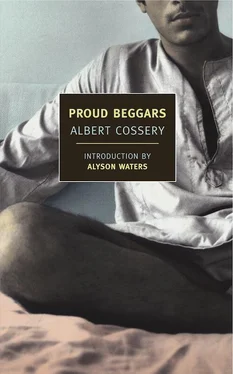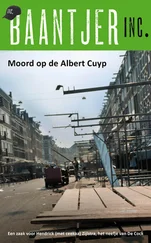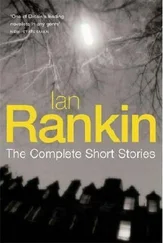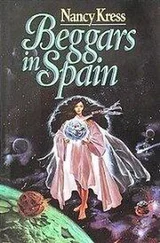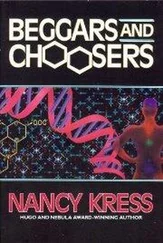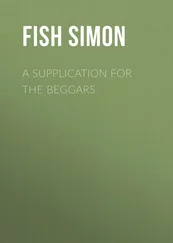Yeghen always used the same tactic: whenever he saw her coming from afar, he would begin to walk in her direction, so that the meeting would appear to be accidental. But was she fooled? Last time, she had smiled at him knowingly, as if to say that she’d understood his stratagem. He had concluded that she was now expecting more daring on his part. Yeghen couldn’t get over this conquest. “She feels no disgust seeing me,” he said to himself. “She’s truly a brave girl!” Or was she simply very myopic? To be more certain, he arranged it so they always met under a streetlamp. He wanted full light, so there could be no mistake. Thus, she was duly warned of his ugliness and couldn’t come later telling him that she hadn’t seen him well in the darkness of the night. Inside, Yeghen exulted each time she looked at him, his face in full view in the streetlamp’s light. She must think he believed himself handsome, and that by showing himself in full light, he was trying to conquer her by the charm of his appearance.
The girl was late. Perhaps she’d already gone home or didn’t have a piano lesson today? Yeghen began to grow tired of the prolonged wait; he stood motionless in the shadows, surrendering to the biting cold and the hostile stares of passersby, who no doubt took him for a thief about to rob them. In fact, waiting around like this was very risky. In the nearby café the rattling of dice had stopped and the muddled sounds of conversations could now be heard, of which Yeghen could only make out bits and pieces. A sweet-potato vendor woke from his torpor and began to praise the quality of his merchandise in a loud voice; he used such voluptuous terms that one would have thought he was describing the charms of a prepubescent girl. Several people passed close to Yeghen, stopped a moment to look at him, then walked on shaking their heads.
He saw her coming from afar and sighed with relief. This prolonged waiting in a suspicious, middle-class neighborhood could end badly; he was glad it was over. He hesitated a moment, then began to walk, calculating his route so that the meeting would occur precisely under the streetlamp. With a profound awareness of his hideousness, Yeghen couldn’t aspire to attract the girl, yet he advanced with the joyous look of a man who was sure he was loved. Deep down, he was counting on his extravagant ugliness to command the girl’s admiration.
Damn! He had forgotten the poem that he’d meant for her. Where was it? He quickly rummaged through his pockets, took out several pieces of paper, and thought he’d found it. “I hope this is it,” he said to himself. If not, too bad — he didn’t have time to check. She’d already reached him like some ethereal being, an apparition born from hashish fumes, so near, so real, and yet so far.
With a light, precise step, she entered the diffused whiteness of the streetlamp, her head high, her eyes fixed straight ahead, dominating the street with a look of disdain that embraced the whole neighborhood. She was wearing a blue velour beret and a coat the same color fastened at the waist with a black leather belt. This European elegance accentuated the unusualness of her haughty gait. The music books that she held tightly under her arm gave her the air of a studious schoolgirl. Everything about her proclaimed naïve pride and total contempt for her surroundings.
She passed close to Yeghen without changing her step, pretending to ignore him completely. He almost came to a stop under the streetlamp; he showed his face in full light, his mouth twisted by a grin that was meant to be an engaging smile. But this time the ludicrous dumb show was lost on the young girl. She didn’t even deign to look at him.
Crushed by this behavior, Yeghen took several more steps, then turned around and ran after her. He felt ready to provoke a riot if necessary. How could she have dared to ignore him!
“You lost this, mademoiselle.”
She stopped, disconcerted, looking grave and a little frightened. The affair was growing complicated for her; she hadn’t thought he would have the courage to approach her. Instinctively, she held out her hand. Yeghen gave her the poem and went off quickly, without turning around.
This took place without incident; he had accomplished his move brilliantly. How would she react after reading the poem? Yeghen looked forward to their next meeting with great pleasure.
POLICE inspector Nour El Dine came into the waiting room, closing behind him the door to the bedroom where the coroner was still examining the corpse of the murdered prostitute. For a moment he stood still, his look severe and full of suspicion; then he surveyed the room with calculated slowness, as if searching for the guilty party. That was part of the routine: the killer was certainly not in the room. Nevertheless, under his icy gaze, all those present shrank into their chairs, and several seconds of formidable silence followed. All the girls of the house were there, as well as three customers who’d placed themselves in this lethal situation of their own accord. They’d had no reason to suspect anything; they had knocked at the door as usual, and a policeman had taken them hostage. Since then, they hadn’t stopped complaining, repeating that they had things to do and that they were in a hurry. But their complaints had no effect on the dreadful policeman guarding the door. Now they were talking among themselves, discussing their respective positions in society, making it known that an error committed against their person could possibly unleash an international scandal.
“I will appeal to the government minister who’s a friend of mine,” said the shabbiest of them.
The two other men said nothing; they were outdone. They had nothing to top a minister. For a moment they thought of mentioning their relations with the king, but that seemed a little too strong. The best they could do was to speak vaguely of acquaintances in high places.
Undoubtedly the most spectacular member of this gathering was Set Amina, the madam. She sat sunken on one end of the couch, a hand on her cheek, the very image of martyred innocence. She moaned tearfully, heaving heartrending sighs, and calling on God to witness her misfortune.
“What a black day! What have I done to Thee, O my God!”
After glancing several times around the room — such a stupid routine! — Nour El Dine walked toward her with a determined step. He looked weary and ready to imprison everyone.
“Stop the act, woman!” he said firmly.
Set Amina shut up like a charm. She swallowed her complaints and became humble and submissive. She was no fool: it was useless to antagonize the forces of authority. She realized the gravity of the situation; this time she risked having her house closed forever. A crime! It could mean the end of her career.
“Well,” resumed the inspector, “what do you have to tell me?”
“What can I tell you, Excellency! On my honor, I don’t know anything. I was out all afternoon with the girls doing errands. When we returned, I went into Arnaba’s bedroom to tell her to get ready. That’s when I saw her lying dead on her bed. I screamed and all the girls came to see what was wrong. May God preserve you from such a sight. I’m still all shook up.”
“That surprises me from you, woman! So, just like that, you desert the house and go for a stroll in town. How can that be? I thought you were more serious.”
“It was the girls’ day off. They’ve got to get out for a breath of air.”
“And why didn’t Arnaba go with you?”
“I don’t know, Excellency. She was capricious. Since she was new, I didn’t want to annoy her.”
“What time was it when you returned?”
“About six o’clock.”
“There was no one in the house besides Arnaba?”
Читать дальше
